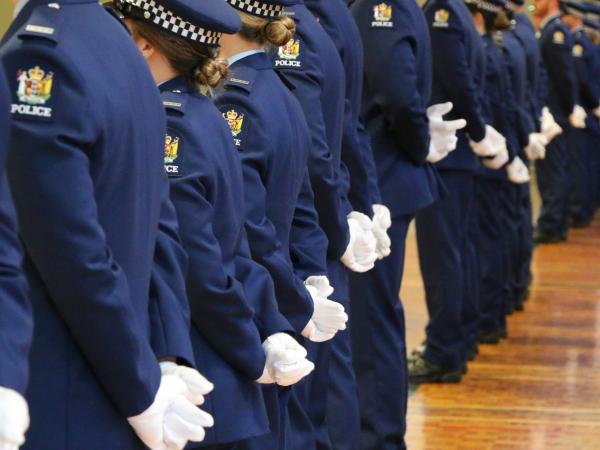Next week 20 Police recruits will begin an initial training programme that is the same, but very different.
Police is running its first non-residential initial training course away from the Royal New Zealand Police College (RNZPC) at Porirua – a pilot involving 20 Auckland recruits who will train in their home city and then serve there.
It follows community feedback that having to spend 16 weeks away at college deterred some potential applicants.
Inspector Iain Saunders, Head of School Initial Training at the RNZPC, says the 20 recruits will receive the same training as they would at the police college, from staff from the School of Initial Training – but will be able to go home at the end of each day.
With Police seeking to increase constabulary numbers, the aim is to unlock the recruitment process for people who would be put off by the prospect of spending so long away from home.
“We’re really keen to see if this initiative can assist us in increasing our numbers by reducing some of the barriers,” says Iain.
“They might be young parents or from households where you need two people to manage the children – the sort of Kiwis who can’t make that leap to come to Wellington for four months.
“We’re giving them another way to join Police and get on with their career in Auckland.”
The recruits are designated Section Five of Recruit Wing 314. The 19-week course starts with six weeks’ classroom-based training at Unitec in Mount Albert, where Tāmaki Makaurau CIB training already takes place.
This will be followed by a five-week block of firearms, driving and defensive tactics training, then eight weeks’ field training based at the North Shore Policing Centre, during which recruits will be mentored and coached by tutor constables.
The Police Association was consulted during development of the course. Auckland was chosen because of its high demand for recruits, and because it has the facilities for tactical training.
The field training will be “live training in the communities where they’ll work”, says Iain, enabling an easier transfer of training to the workplace.
“It’s also a chance for Auckland staff to take part in training their recruits.” Expressions of interest for tutor constable roles have been sought.
There has been interest in Auckland training for other Upper North recruits – and, if the pilot succeeds, consideration will be given to other potential locations.
An external evaluator will track progress of the pilot. Outcomes for the recruits will be compared with those for RNZPC-based recruits and the project must also prove its worth in cost-benefit analysis.
“We know the recruits will be successful,” says Iain. “There’s no difference in what they’re learning or how they’re trained, it’s just the location. It’s not an experiment in that sense.”
The Auckland recruits share their Wing Patron – Sir Noel Robinson – with the RNZPC-based members of Wing 314 who started training in February, and graduate next month. The Auckland section graduates in Auckland in September.
- One previous Auckland wing underwent initial training in Auckland - the residential Recruit Wing 120, which started in October 1974. The recruits were trained and accommodated at Ardmore Teachers College.
